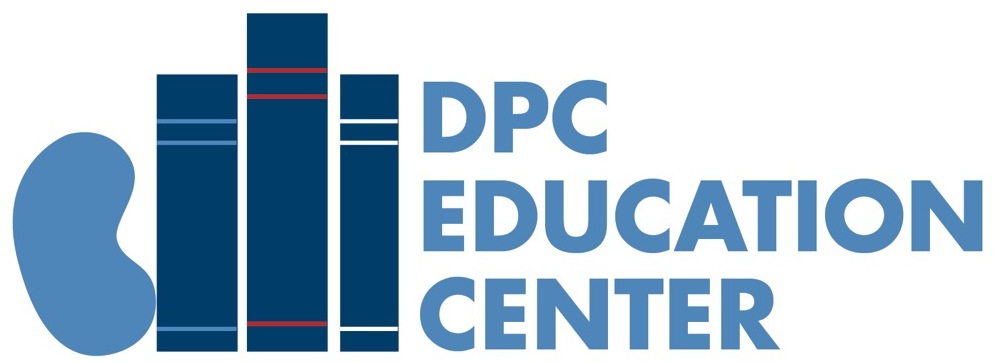1. Work with your healthcare team to determine if a transplant is correct for you.
2. If transplant is a good option for you, you will need a referral by your physician to a transplant center (please note some centers don’t require a physician referral).
To work through steps one and two you will first need to understand who the members of your team are and how they will guide you through the process.
The players involved.
The most important individual is YOU! You are the ultimate decider. It is your responsibility (with help from others covered below) to understand all of your options, prepare for surgery and care for your new organ.
Friends/Family – These individuals are your support team and will help fill in any gaps in your care. They are also your best option for a living donor. We will cover the process of asking later in the class, but do remember that even if they say no that it doesn’t mean they love you any less or are a bad friend. It is a difficult situation and everyone deals with it in their own way.
Renal (kidney) healthcare team
Doctors – Your team of doctors will consist of primary care physician who will look after your general medical care and specialists such as your nephrologist that have responsibility for the overall care for your kidney disease. Your nephrologist in many cases will refer you to the transplant evaluation center, but others on your care team can also play a role in your referral and some places allow patients to refer themselves.
Nurses – Your nurses normally serve as your first point of contact for any questions about your care. They either know the answers to your questions or they can point you in the right direction. They can also be instrumental in helping you get a referral for a transplant evaluation.
Social worker – Your social worker is another player that can wear many hats. They can help provide you with information about a transplant, help find financial support and also help remove emotional stresses and burdens.
Dietician/Nutritionist – These are the people that can help you get your diet on track to prepare for a transplant and help you stay healthy after your surgery. They are specialists that can help make a renal friendly diet that still takes your favorite foods into account.
Transplant Doctor/Surgeon – Once accepted into a transplant program, your transplant doctor will handle your medical care before and after your transplant. The transplant surgeon will determine if a transplant is best for you, handle the surgery itself and will also serve as an expert to help you understand the risks and benefits and care for your new organ.
Transplant Coordinator/Staff – These staff serve as a strong linkage between your pre-transplant care team and your new transplant team. As their name suggests they coordinate all of the activities surrounding your transplant. They are responsible for providing education, organizing your care, helping you schedule appointments, answer questions about the transplant and just help you through the entire process.
Pharmacist(s) – Your pharmacist is another valuable resource in your care team. Not only do they dispense your prescriptions, but they can also help you understand side effects, any possible interactions and can work with your doctors to fine tune your medications.
Psychologist/Psychiatrist – These experts will help with the mental health side of your total body health. Mental health is often underrated and having a good outlook can dramatically improve your physical health. Not every facility will have an individual on staff nor will every patient need this resource. However, your transplant center will at least be able to refer you to a mental health specialist.
Financial Advisor – This is the individual that will help you cover the money side of getting a transplant. They will work closely with other support staff such as social workers to figure out if getting a transplant is a good option for you and how to best pay for that option.



